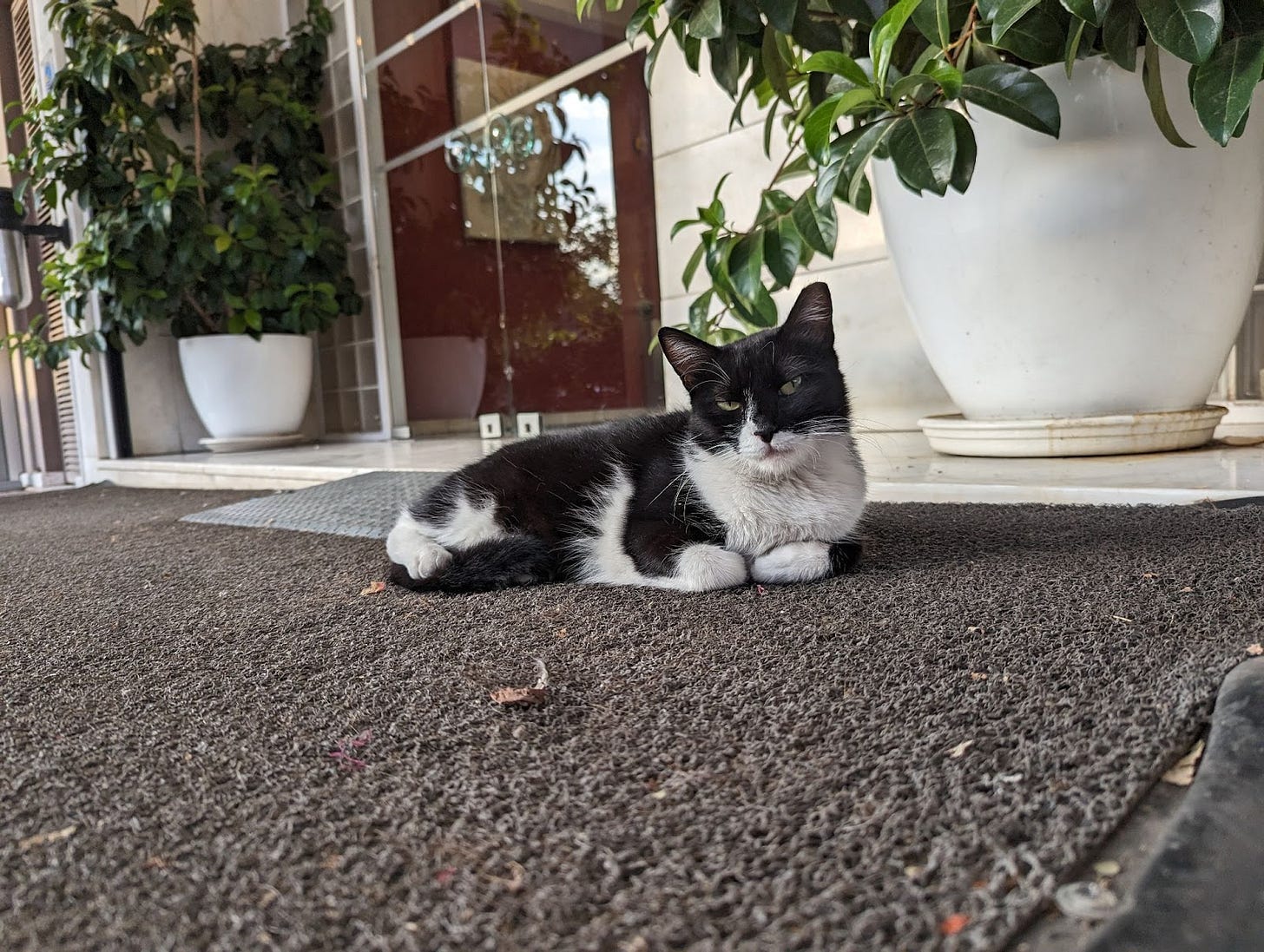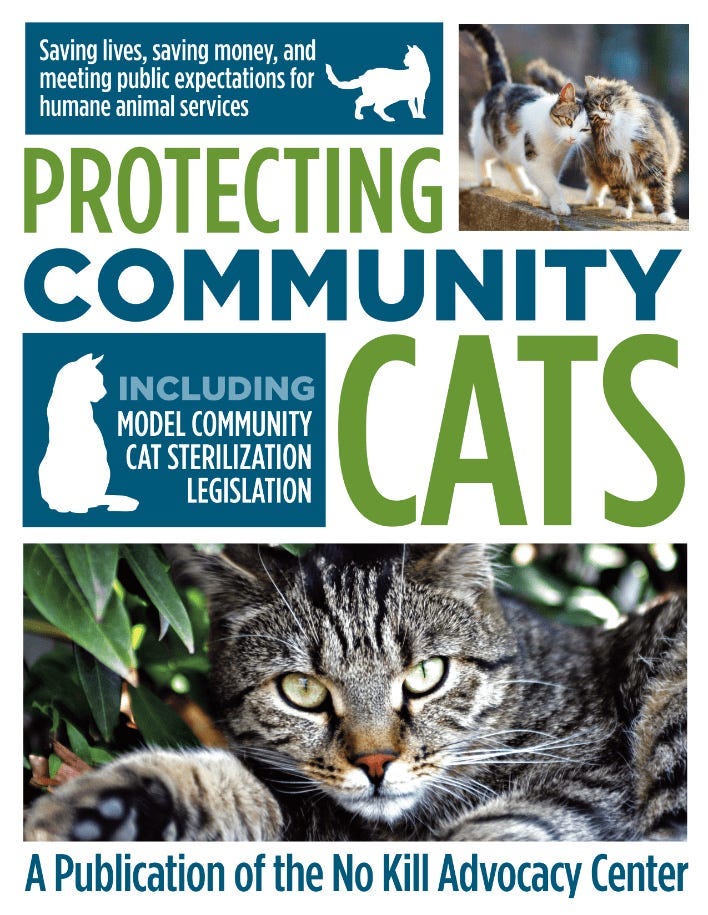Pound intakes are down, but abuse and killing are increasing
News and headlines for February 24 - March 1, 2024

In other news: saving community cats, ending breed discriminatory legislation, neglect and abuse by municipal pounds, constitutional protections for dogs, communities looking for someone to run their animal shelter, plant-based “meat,” factory farm cruelty, animal-abuser registries, banning breeding, dogs make good neighbors, exploiting dogs to help “conservationists” kill, and more.
These are some of the stories making headlines in animal protection:
A reminder that I am no longer posting to Twitter or my Facebook page. I will continue posting on the Facebook page of The No Kill Advocacy Center, The No Kill Advocacy Center’s news page, and, of course, here. I hope you join the discussion by subscribing.
The Hutto, TX, City Council “approved a city ordinance that decriminalizes releasing neutered feral cats, aligning with current state law.”
Hutto’s new city ordinance still defines it as unlawful for cat owners to abandon or allow their felines to stray onto anyone else’s property. Stray cats will be impounded and the owners may face misdemeanor charges. However, a person who is caught releasing a feral cat and can prove the cat was being released as part of a TNR program can avoid prosecution and the cat will not be impounded.
This ruling applies only to feral cats that have been taken to a veterinarian for vaccinations and sterilization, and who have had one ear notched by the veterinarian.
Community cat sterilization is good policy that:
Improves the health and quality of life for community cats;
Reduces intake and killing of community cats;
Reduces complaint calls to animal control;
Reduces illness in the shelter;
Reduces waste of taxpayer money on impound and killing; and,
Increases opportunities to expand the lifesaving of other animals.
Learn more about the benefits of Protecting Community Cats in The No Kill Advocacy Center’s free guide.
Out of the shadows and into the sun: all dogs are welcome again in Clay County, KS. The City Council repealed its breed discriminatory ordinance.
Banning dogs based on appearance is immoral. It is also ineffective. That’s not just opinion; it’s science:
The breed of a dog tells how they look, not how they behave;
50% of dogs labeled as pit bulls lack the DNA of breeds commonly classified as pit bulls;
Dogs targeted for breed discriminatory laws are not more likely to bite, do not bite harder, and such bans do not result in fewer dog bites or bite-related hospitalization rates; and,
Enforcement is expensive, with no measurable impact on public safety.
Bans also negatively impact surrounding communities and rescue groups, which have to take on the burden of such regressive and selfish policies to save the lives of these dogs.






